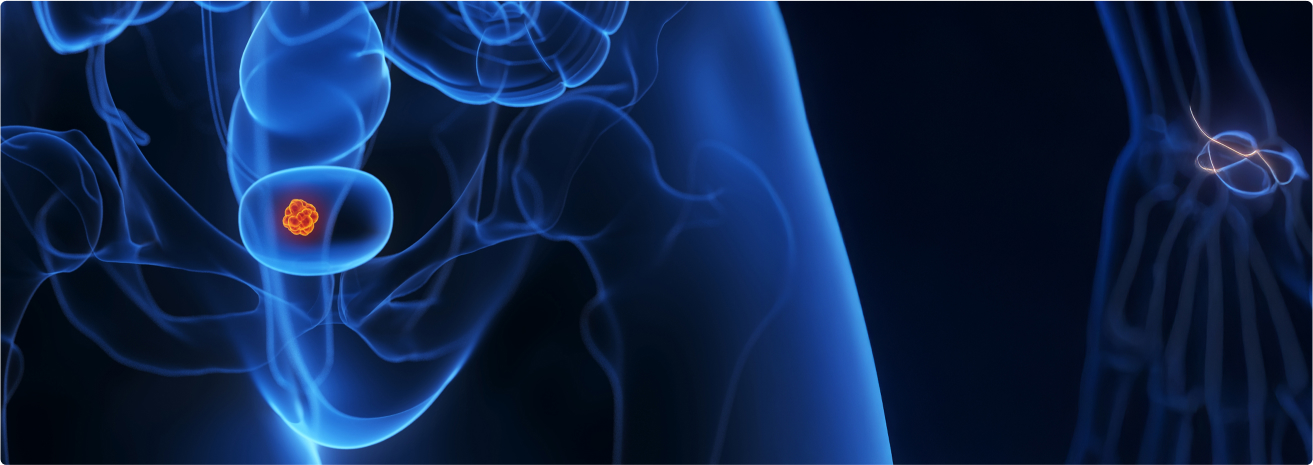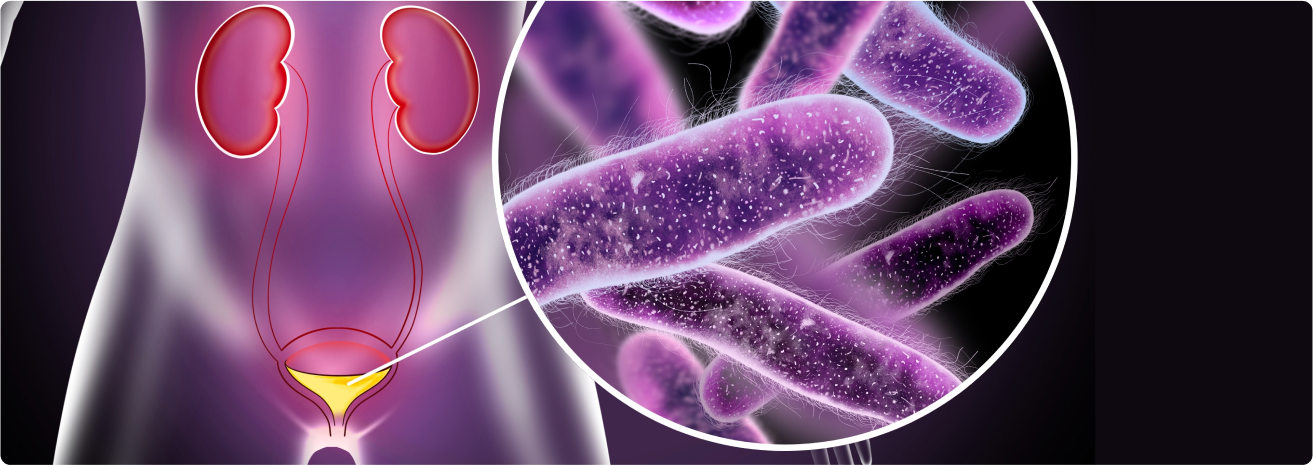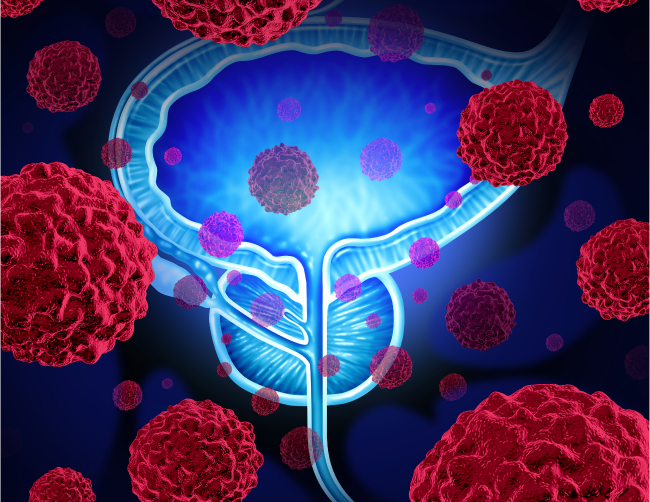Bladder Cancer

Bladder cancer begins in the cells of the bladder, the organ responsible for storing urine. It is more common in men than in women and is typically diagnosed in older adults. The majority of bladder cancers are transitional cell carcinomas, but there are other types as well. At Burjeel Cancer Institute, we provide advanced care for bladder cancer, including minimally invasive surgeries, chemotherapy, radiation therapy, and immunotherapy. We focus on personalized treatment plans designed to meet the unique needs of each patient.
Common Symptoms of Bladder Cancer
- Blood in the urine (hematuria), often the most common symptom
- Frequent urination or urgency
- Pain or burning sensation during urination
- Lower back pain, especially on one side
- Pelvic pain
- Unexplained weight loss

Risk Factors for bladder cancer
Smoking
The leading risk factor for bladder cancer. Smokers are more likely to develop bladder cancer than non-smokers
Age
The risk increases with age, with most bladder cancers diagnosed in people over 55
Occupational Exposure
Workers in industries that involve exposure to certain chemicals, such as dyes, rubber, leather, and petroleum products, have an increased risk
Chronic Bladder Inflammation
Conditions like chronic urinary infections or bladder stones can increase the risk of bladder cancer
Family History
A family history of bladder cancer may increase the risk, especially if genetic mutations like Lynch syndrome are involved
Radiation Therapy
Previous radiation therapy to treat pelvic cancers can increase the risk of bladder cancer
Diagnostic Procedures
Accurate diagnosis of bladder cancer is crucial for determining the best treatment plan. We offer a range of advanced diagnostic tools, including:
Cystoscopy
A procedure where a thin, flexible tube with a camera (cystoscope) is inserted into the bladder to visually examine the bladder lining and take biopsy samples if necessary
Urine Cytology
A laboratory test that examines a urine sample for abnormal cells, which may indicate bladder cancer
CT Urography
An imaging test that provides detailed images of the urinary tract, including the kidneys, ureters, and bladder, to detect tumors or abnormalities
MRI
Offers high-resolution imaging to assess the extent of bladder cancer and its spread to surrounding tissues or organs
Intravenous Pyelogram (IVP)
X-ray imaging used in conjunction with contrast dye to evaluate the kidneys, ureters, and bladder for abnormalities
Biopsy
A sample of bladder tissue is taken during a cystoscopy for laboratory analysis to confirm the presence of cancer cells

Treatment Options
Immunotherapy
- Bacillus Calmette-Guérin (BCG): A type of immunotherapy delivered directly into the bladder to stimulate the immune system to attack cancer cells, commonly used in early-stage bladder cancer.
- Checkpoint Inhibitors: Drugs such as pembrolizumab or atezolizumab help the immune system recognize and attack cancer cells, used in advanced bladder cancer.
Chemotherapy and Medical Oncology
- Intravesical Chemotherapy: Chemotherapy drugs are delivered directly into the bladder via a catheter, allowing high concentrations of the drug to target cancer cells in the bladder.
- Systemic Chemotherapy: Used for more advanced bladder cancer, systemic chemotherapy works throughout the body to destroy cancer cells.
- Adjuvant and Neoadjuvant Chemotherapy: Chemotherapy may be given before surgery to shrink the tumor (neoadjuvant) or after surgery to destroy any remaining cancer cells (adjuvant).
Radiation Therapy
- External Beam Radiation Therapy (EBRT): High-energy radiation is used to destroy cancer cells and shrink tumors. Radiation therapy may be used in combination with chemotherapy or as a primary treatment for patients who are not candidates for surgery.
Surgical Treatment
- Transurethral Resection of Bladder Tumor (TURBT): A minimally invasive procedure where a surgeon removes bladder tumors using a cystoscope. This is often the first step in treating early-stage bladder cancer.
- Radical Cystectomy: Removal of the entire bladder, often combined with the removal of nearby lymph nodes and, in men, the prostate. In women, the uterus, ovaries, and part of the vagina may also be removed.
- Partial Cystectomy: Removal of a portion of the bladder containing the cancer, preserving the rest of the bladder.
- Bladder Reconstruction: After a radical cystectomy, bladder reconstruction options such as creating a neobladder (new bladder) or an ileal conduit (urinary diversion) are available.
Multidisciplinary Approach
Bladder cancer care requires collaboration among a team of specialists. At Burjeel Cancer Institute, we offer a comprehensive, multidisciplinary approach that includes:
- Urologic Surgeons
- Medical Oncologists
- Radiation Oncologists
- Radiologists
- Pathologists
- Genetic Counselors
- Oncology Nurses
- Palliative Care Specialists
This team works closely together to develop personalized treatment plans based on the stage and characteristics of the cancer.


Supportive Care and Patient Services
We provide a wide range of supportive care services to help patients manage bladder cancer and maintain their quality of life:
Nutritional Counseling
Tailored dietary advice to support patients during treatment and help manage side effects
Bladder Reconstruction and Continence Support
We offer reconstructive surgery options for patients who have undergone bladder removal, along with ongoing support to manage urinary continence
Palliative Care
Symptom management and quality-of-life support for patients with advanced or metastatic bladder cancer
Psychosocial Support
Counseling services to help patients and their families cope with the emotional and psychological challenges of a bladder cancer diagnosis
Physical Rehabilitation
Post-surgical rehabilitation programs designed to help patients regain strength and adjust to life after bladder cancer treatment
Survivorship Program
Ongoing care and monitoring for patients who have completed treatment, focusing on long-term health and preventing recurrence
Meet Our Experts
We guide bladder cancer patients through every step of their treatment journey, providing personalized care and support:
Patient Journey
Initial Consultation
A comprehensive evaluation with the bladder cancer care team, including diagnostic imaging and tests to assess the extent of the disease
Personalized Treatment Plan
Based on the patient’s diagnosis, preferences, and overall health, a customized treatment plan is developed
Treatment and Support
Patients undergo the recommended treatments, supported by a multidisciplinary team and personalized supportive care services
Follow-Up Care
After treatment, patients receive regular follow-ups to monitor recovery, assess treatment response, and manage long-term health concerns





